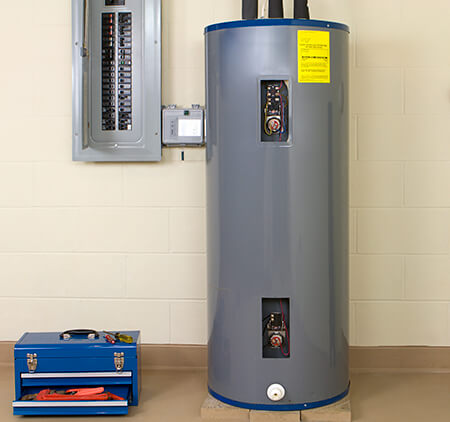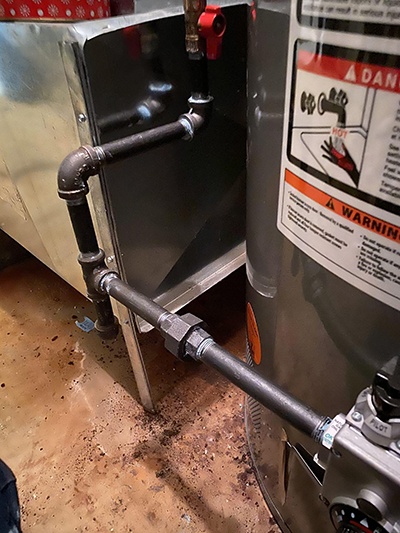Make sure you have a reliable hot water supply with our expert services
 If you are experiencing problems with your electric water heater, the professionals at Pipe Works Services can inspect your water heater and determine whether it’s worth repairing, or if replacement may be smarter. If your electric water heater runs out of hot water or isn’t delivering hot water at all, give us a call!
If you are experiencing problems with your electric water heater, the professionals at Pipe Works Services can inspect your water heater and determine whether it’s worth repairing, or if replacement may be smarter. If your electric water heater runs out of hot water or isn’t delivering hot water at all, give us a call!
We provide estimates in Madison, Chatham, Summit, and Northern and Central NJ for water heater repair and replacement. Contact us today to schedule an appointment!
How does an electric water heater work?
Most electric water heaters are tank-type models that share the same basic anatomy. Electric heating elements inside the tank serve as the heat source for the stored water. A thermostat controls the current to the heating elements to maintain a water temperature between 120 and 140 degrees. Hot water leaves the tank through a pipe at the top of the tank. Cold water enters the tank through another pipe.
A sacrificial anode is installed inside the tank to help minimize corrosion on other parts of the system. A relief valve in the tank wall is designed to open if internal pressure or temperature exceeds safe levels. A drain valve at the bottom of the tank allows accumulated sediment to be drained periodically. All new tank-type water heaters have insulation covering the tank to reduce heat loss and improve energy efficiency.

What can go wrong with an electric water heater?
On average, an electric, tank-type water heater will last 10-15 years. Basic maintenance and (in some cases) occasional repairs will help prolong the heater’s life and improve its performance, too.
- Sediment. Corrosion inside the tank, combined with mineral deposits, eventually creates a layer of sediment at the bottom of the tank. This buildup should be drained at least once a year.
- Leaks. Water can begin to leak around openings for valves or pipes, or through worn valves. Metal tanks can corrode from the inside, developing leaks through weakened wall areas.
- Faulty thermostat. If the thermostat isn’t functionally properly, the stored water can get too hot, or stay too cool.
- Broken dip tube. Present on some tank-type water heaters, the dip tube can break or detach, cooling off the hot water supply before it leaves the tank.
- Corroded sacrificial anode. An older, fully corroded anode should be replaced with a new anode to maintain corrosion protection.
- Broken heating element. Electric heating elements can be damaged by lime buildup or sediment deposits.
Malfunctioning relief valve. The relief valve can cause problems if it leaks or if it doesn’t open at the correct temperature and pressure settings.
Repair or replace an older water heater? Make the right call with expert assistance from Pipe Works Services
It’s not always easy to decide whether to repair an older water heater or replace the unit with a newer model. To avoid problems with this critical appliance, contact the experts at Pipe Works Services Our technicians provide water heater inspections and estimates for all recommended water heater repairs, maintenance, and replacements. Plus, we have access to the best new ENERGY STAR® electric water heaters available.


